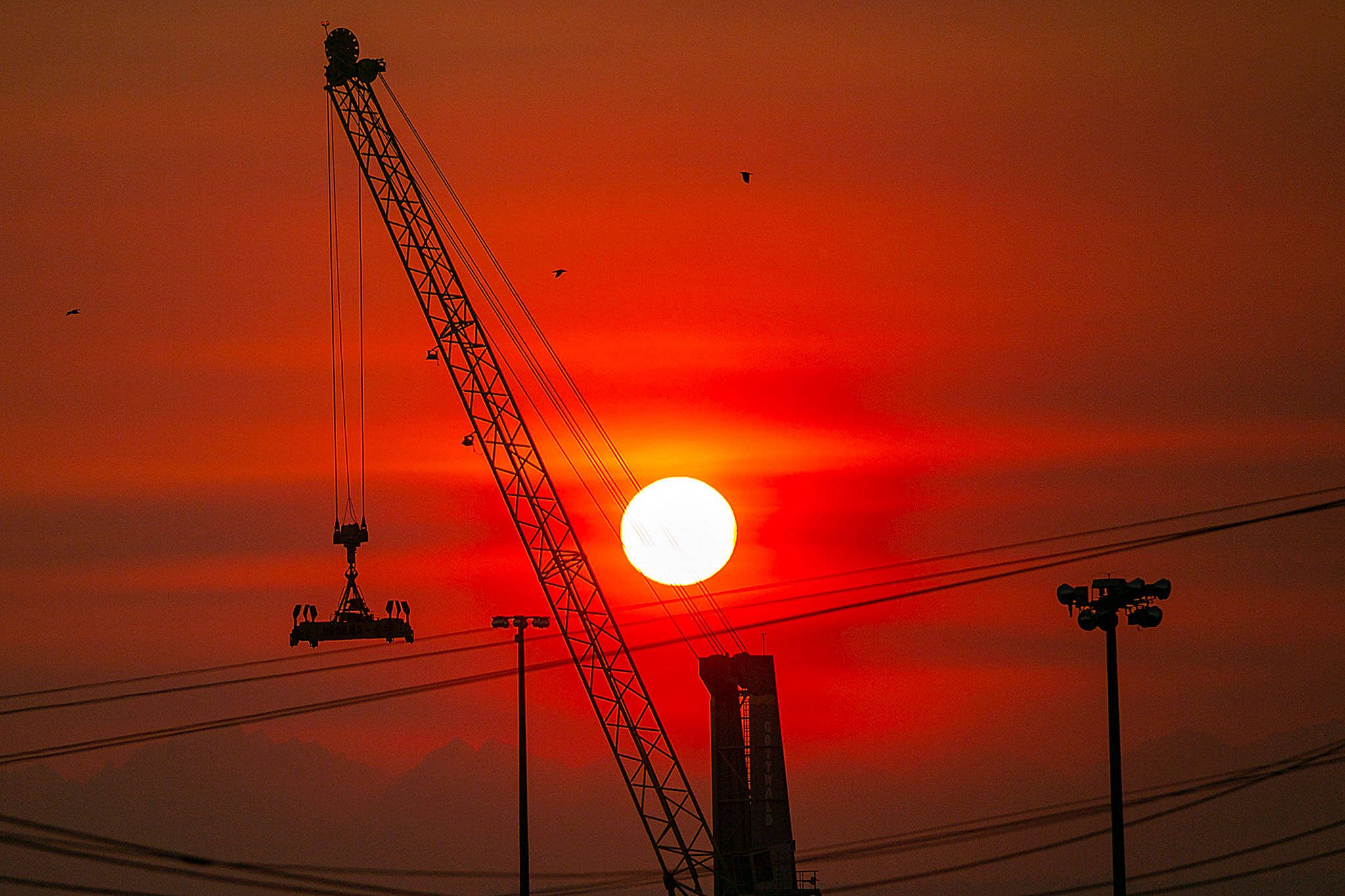EVERETT — As sea levels rise, members of the Quinault Indian Nation have endured more flooding along the western coast of the Olympic Peninsula.
It has made their primary village at Taholah uninhabitable.
“They’re having to relocate to a different area (uphill) within the reservation,” said Melissa Watkinson-Schutten, a UW Bothell graduate who is now deputy executive director at Na’ah Illahee Fund. That has “an impact on the tribe’s ability to really have that connection with the shoreline that they had since time immemorial.”
Watkinson-Schutte was an author for the Social Systems and Justice chapter of the fifth National Climate Assessment published this month. Every four years since 1990, the U.S. Global Change Research Program has released the report to analyze climate change’s effects on nearly every facet of life, as mandated by Congress.
Contributors said this year’s report focused more on people disproportionately affected by climate change, such as the Quinault Indian Nation.
In Western Washington, warmer seasons, reduced snowpack and unpredictable precipitation will only continue to get worse on the country’s current trajectory, according to the report.
Meanwhile, state experts are looking at ways to help the environment — and society — adapt to the effects of climate change.
‘Learn from each other’
Wildfires have grown in size and frequency since the release of the last National Climate Assessment, especially in the West, said Jessica Halofsky, director of the U.S. Department of Agriculture Northwest Climate Hub.
A hotter, drier landscape will also cause trees to grow at a slower rate and continue to make fighting wildfires more difficult, she said.
Researchers across the country have started exploring ways to prepare native species for changes that may be inevitable.
“What we’re trying to do is learn from each other, so it gets easier to implement adaptation over time,” she said. “People aren’t reinventing the wheel.”
Near Willapa Bay, for example, staff at the Nature Conservancy are experimenting with tree seeds to see which species can withstand the future climate of the Pacific Northwest, said Michael Case, a forest ecologist with the nonprofit.
In Mt. Baker-Snoqualmie National Forest, proactive forest management could protect old growth trees, Case said.
“Doing things like thinning, and in some areas, even prescribed burning, can really help reduce the stress to the trees and give them a better chance of surviving under climate change,” Case said.
‘There’s anger, there’s anxiety’
Another common theme throughout the new climate assessment? How climate change affects mental health, said Deepti Singh, an author of this year’s report.
Many marginalized people have symptoms of PTSD when they lose their land, food and other valuable aspects of their surroundings, she said.
Singh, an assistant professor at Washington State University Vancouver, said her students did not relate to climate change before the 2021 “heat dome” in the Pacific Northwest.
But “they feel like this is personal now,” she said.
Some of her students have family members who are farmers and firefighters — professions increasingly overwhelmed by changing climate patterns in recent years.
Singh noticed her students are also more aware of health and cultural inequities since 2021.
“There’s anger, there’s anxiety and there’s passion and commitment to addressing these issues,” she said.
‘Disparities of access’
Watkinson-Schutten has harvested shellfish and salmon most of her life. It’s a key part of her cultural identity: Her dad is from the Upper Skagit Indian Tribe, and she is a citizen of Chickasaw Nation, as well as a descendent of Choctaw Nation.
She said over time, she has witnessed climate change contribute to local seafood’s decline in quality and quantity. Harvesting shellfish and salmon is something everyone should have access to, she said, as it is a cultural tradition in the Northwest.
These “disparities of access” are due in part to the fact that Indigenous communities are essentially excluded from most social systems, as defined in the National Climate Assessment: governance, economies, organizations, laws and customs. Indigenous people are experiencing worse climate impacts. So they need to be included in climate-related discussions and decisions, she said.
It is essential for people in leadership roles to advocate for those who are disproportionately affected by a warming planet, Watkinson-Schutten said.
”Everyone has an opportunity to do the work,” Watkinson-Schutten added. “Everyone has an opportunity to mitigate the impacts of climate change and to adapt to the changes that are happening.”
Ta’Leah Van Sistine: 425-339-3460; taleah.vansistine@heraldnet.com; Twitter: @TaLeahRoseV.
Talk to us
> Give us your news tips.
> Send us a letter to the editor.
> More Herald contact information.

























